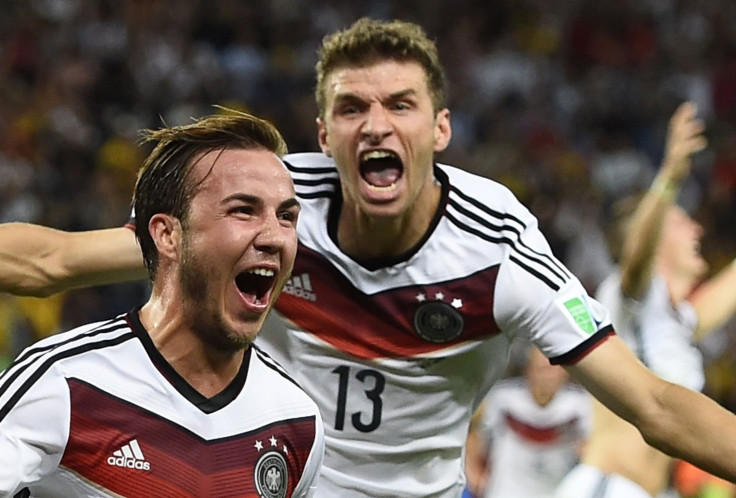
The rubber match between Germany and Argentina at the 2014 World Cup final did not disappoint as both teams were stellar and displayed remarkable defensive prowess as it took 113 minutes before the game winning goal was finally scored.
In a moment straight out of a Hollywood script, Germany’s super-sub Mario Goetze who was in the dog house with German coach, Joachim Loew, came in right before extra time for the all-time greatest goal scorer in World Cup history, Miroslav Klose and scored the goal for Germany that will never be forgotten.
Both teams were mentally and physically exhausted by the time the goal was scored, but it was clear that Germany was able to grind out this win as they appeared to be the more dominant team not just in this game, but throughout the entire tournament.
In a stunning turn of events before the national anthems were even sung, Germany’s Sami Khedira, who plays for Real Madrid and is the Germans’ top midfielder, was injured in warm ups and not in the starting lineup. Christoph Kramer started in his stead. I wrote in my preview to this marquee match, that the players to watch for were not Messi or Mueller, but rather Khedira and Argentina’s Javier Mascherano. Not having Khedira was a big blow for Germany.
Both teams came out guns blazing. Most thought that nerves and the pressure of the moment would lead to slower more conservative play, but each team came out aggressive and with many opportunities. Argentina was content with giving Germany possession in the back 2/3 of the pitch. Once they entered the final 1/3 close to the Argentine box, their defense swarmed and contained the high potent German attack.
Argentina had more chances however and their counter attack was quick and impressive as Messi was able to blow past the German defense time and time again.
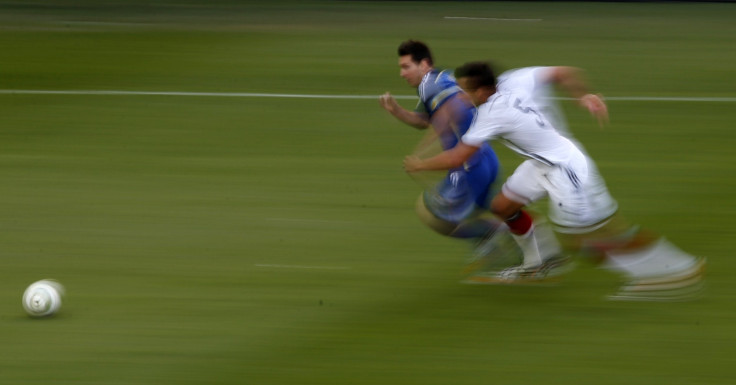
Argentina was given the gift of a lifetime in the 20th minute when Germany’s Toni Kroos accidentally headed a free kick the opposite direction which led to a wide open break away shot for Argentina’s Gonzalo Higuain. There was no one but him and the goalie as he entered the box and then shanked the shot wide left. It was a gift of a goal from Germany and Higuain couldn’t convert. You wondered at the time if the mistake would come back to haunt Argentina.
Higuain thought he had redeemed himself and scored the go ahead goal in the 30th minute, but was two yards offsides. It was a great cross by Lavezzi that Higuain hammered into the right side of the net. The crowd went into frenzy and then a stunned silence once they saw the flag was up. After further review, it was the correct call.
On the play, Khedira’s replacement, Christoph Kramer was no longer able to play and had to come off the pitch. He was hurt earlier in the match around the 17 minute mark when he was knocked into next week by Argentina’s Ezequial Garay’s shoulder. Germany had to use their first substitution of the game, as they brought in Andre Shuerrle to replace him. Argentina could not have been happy to see Schuerrle however as he was one the most efficient player in the tournament, scoring three goals in just over 150 minutes of play.
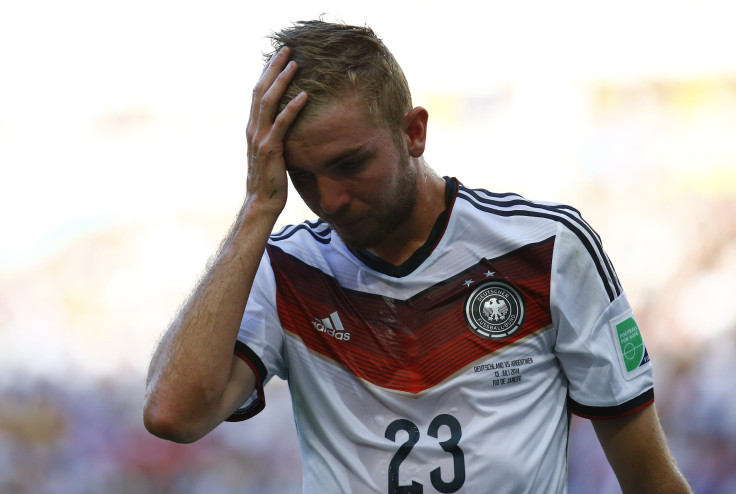
As disappointed Argentina and its fans were with the offsides call, they could relish in a moral victory of sorts. At the same time in the semifinal game against Brazil, Germany was already up 5-0. This was clearly going to be a different type of game than that.
Germany received a gift in the 33rd minute when defenseman Benedikt Hoewedes was shown a yellow card for spiking. Upon replay, the bottom of Hoewedes’ cleat was shown and rode all the way up the groin area of the Argentine forward. Hoewedes was very lucky he was not given a red card.
Argentina gave Germany two consecutive corner kicks in the final moments of the first half, a terrible thing to do, as Germany is fantastic off set pieces. The second corner should have been a goal for Germany as Hoewedes’ header went flying into the post. He was an inch away from giving Germany the lead.
Argentina made a move to open the second half when they brought on the injured Sergio Aguero for Lavezzi. Everyone had to wonder how fit Aguero really was. If healthy, he’s a great attacker, but lately he had been slowed by a thigh injury.
Messi had a great opportunity to open up the second half as he crashed into the left hand side of the box and bent a shot that looked like it was going into the far right side of the net. It missed by a foot though and Germany survived the threat by “La Pulga”.
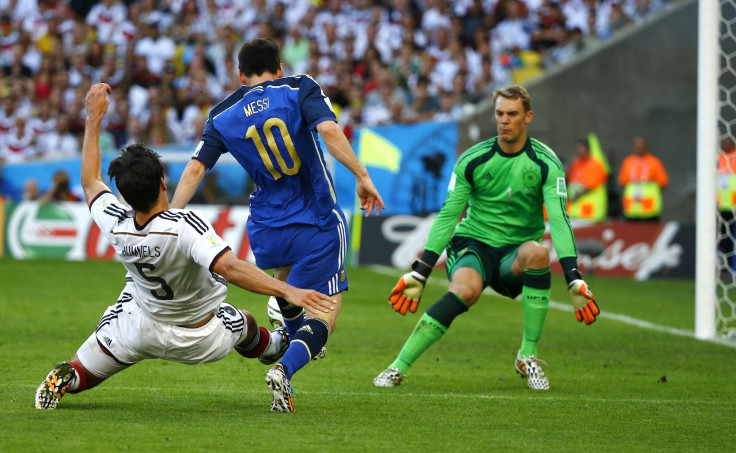
The man known as Rodrigo “The Rattail” Palacio came on in the 77th minute for Gonzalo Higuain. Higuain had a great chance at a goal early in the game, and a second goal that was disallowed because he was offsides. He would have the remainder of the match to agonize over each of those moments.
Fatigue began to run its course in the final moments of the game as you could see that Argentina was becoming physically exhausted, as the game got closer to extra time. Not only had they played more game time than Germany throughout the World Cup, they played a grueling two hour long plus penalties semifinal match against the Netherlands, a day after Germany played.
Both coaches could recognize that fatigue was starting to take its toll so rather than wait to use their last substitution in case there was extra time; both coaches substituted their most tired players with just minutes remaining in regulation time. Argentina substituted Fernando Gago for Enzo Perez, and Germany countered by removing Miroslav Klose for Mario Goetze. In a great moment, the crowd stood and cheered as Klose came off the pitch. Klose is the all-time leading goal scorer at the World Cup and at 36 years old has likely played in his final World Cup.
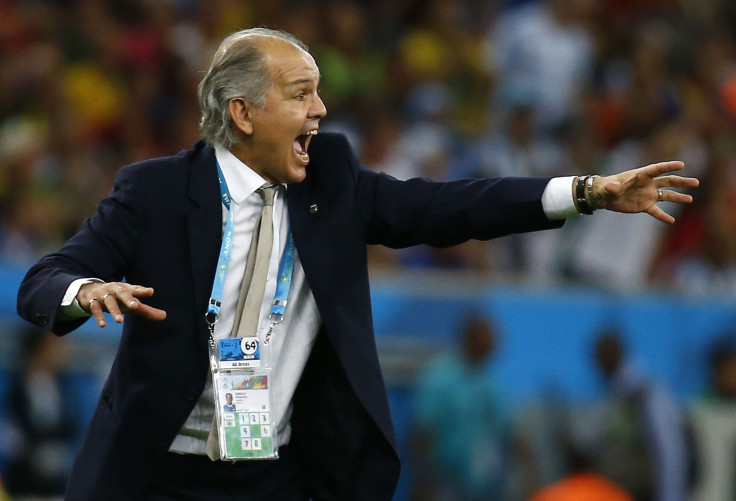
Regulation time would end much like the 2006 and 2010 World Cup Finals did, with a scoreless tie. There would be 30 more minutes of extra time to decide which team would hoist the cup, and although physically and mentally exhausted, Argentina felt comfortable having been there in a similar situation two of their last three games.
The game winning goal came in the 113th minute when Germany’s super-sub, “Super Mario” Goetze scored a beautiful goal to give the World Cup to Germany. He had a beautiful touch off his chest and hammered into the back of the net in one motion. The entire country of Argentina and all their supporters in attendance stood shocked and stunned as the German fan base exulted. You could hear the Brazilians outside of the Maracana cheer as well as it would mean their rivals would have their hearts broken on Brazilian soil.
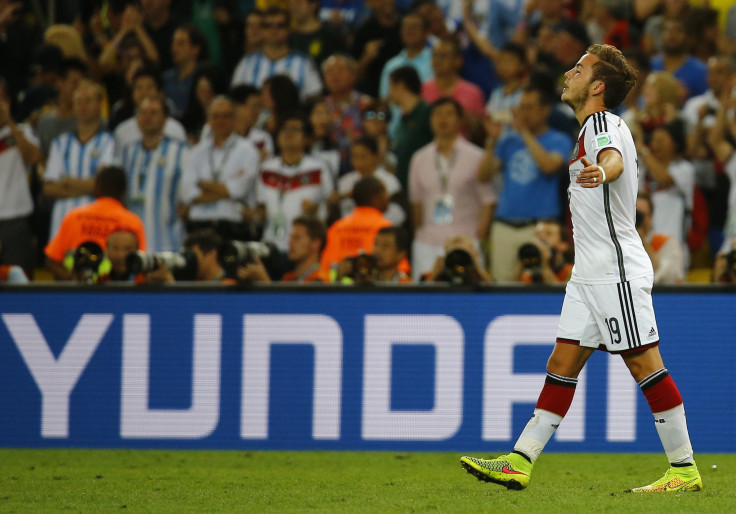
Lionel Messi was given the last chance of the match with a corner kick from 25 yards out to try and find the equalizer for Argentina. As if the moment got the best of him, he had a little too much effort on it as it sailed over the net. Argentina would be eliminated for third consecutive time at the World Cup at the hands of Germany.
The final whistle blew and one of the smallest men on the pitch became the biggest hero as Goetze was mobbed by his teammates. For Germany, they win their first international trophy in over 15 years and their first World Cup trophy since 1990.
© 2025 Latin Times. All rights reserved. Do not reproduce without permission.




